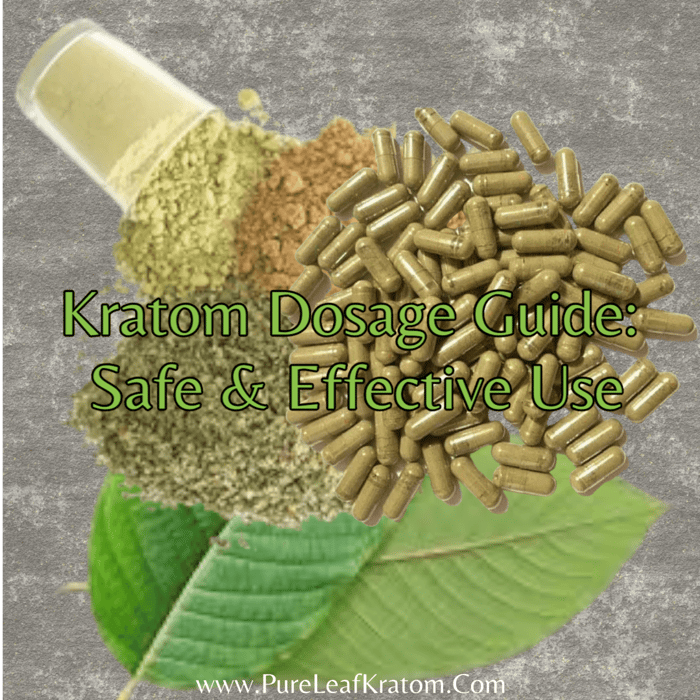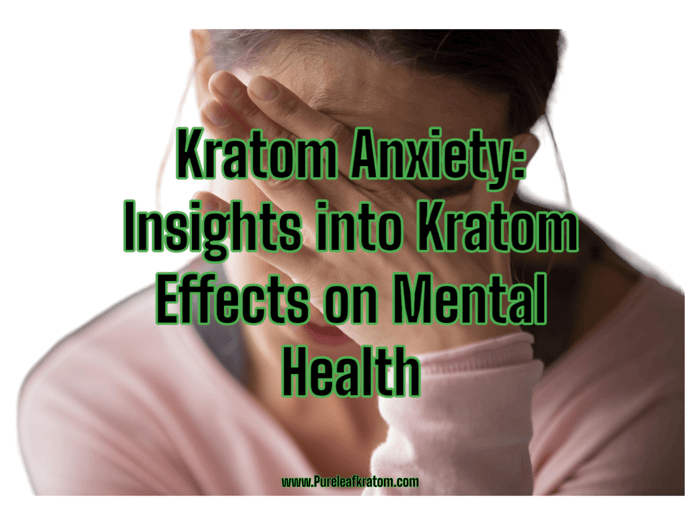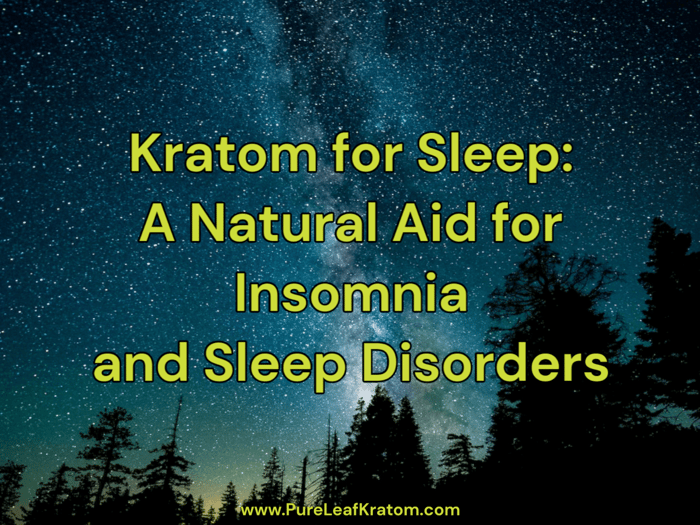
Kratom for Sleep: A Natural Aid for Insomnia and Sleep Disorders
Exploring The Potential of Kratom: A Unique Herb
Kratom, scientifically known as mitragyna speciosa and valued for its historical use in traditional medicine, is a tropical tree native to Southeast Asia. With bioactive alkaloids like mitragynine and 7-hydroxymitragynine, kratom shows promise for various therapeutic applications, including potential benefits of kratom for sleep.
A Glimpse at Kratom's Heartland: Southeast Asia
The native terrain of kratom - Southeast Asia - has nurtured the traditional usage of this plant for pain management, mood enhancement, and to combat lethargy. Be it promoting a sense of well-being or boosting energy and focus, kratom has traditionally been consumed in its natural form by chewing fresh leaves or brewed as a tea from dried leaves.
Understanding Kratom's Biochemical Identity
Peeling back the surface to delve into the molecular composition of kratom, the star players are indeed its indigenous alkaloids. Predominantly, the alkaloids mitragynine and 7-hydroxymitragynine steal the spotlight with their partial agonism behavior at human μ-opioid receptors. These alkaloids are primarily responsible for kratom's characteristic analgesic effects, which has sparked interest in the plant's potential role in opioid replacement therapies.
In contrast, another intriguing alkaloid, speciofoline, contributes to kratom's molecular profile without directly binding to opioid receptors. However, it could exert other biological effects. One shared attribute among these alkaloids, as noted in research, is their ability to inhibit select cytochrome P450 enzymes – an aspect that may lead to adverse interactions with concurrent medications.
Krave Kratom Capsules Red Hulu
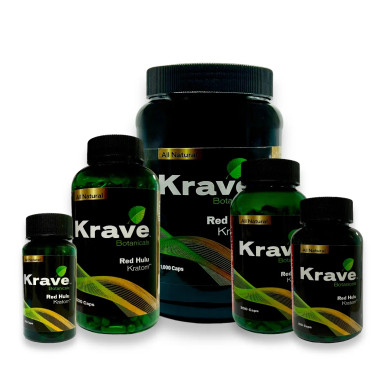
$8.49
Krave Kratom Capsules Red Hulu Allow us to unveil Krave Kratom Capsules Red Hulu – a true marvel in the realm of Kratom. This extraordinary...… read more
Kratom: An Unconventional Combatant in the Opioid Battle?
Exploring a Potential Alternative to Opioids
The similarity in the operational mechanism of kratom, specifically alkaloids like mitragynine and 7-hydroxymitragynine, to opioids, has ignited a conversation about substituting opioids with this herbal supplement. While their shared propensity to activate μ-opioid receptors may suggest comparable therapeutic effects, it's crucial to handle this hypothesis with caution. Using kratom as an alternative to opioids could offer the benefits of pain relief and mood enhancement with potentially fewer side effects and lower addiction risk. It's worth noting though the need for evidence-based research on this subject to confirm such assumptions.
Balancing the Potential Benefits and Pitfalls of Kratom
When diligently explored, kratom could potentially serve as a versatile herbal remedy providing various benefits ranging from pain management to insomnia control. On the flip side, the herb exhibits significant variability in terms of alkaloid content, as highlighted by different chemotypes of commercial kratom. This creates a multidimensional challenge of ensuring consistent therapeutic efficacy while minimizing risk. As with any potent herb, wise and cautious application of kratom is key to harnessing its benefits while avoiding unwanted mishaps.
Kratom as a Natural Sleep Aid
Given the pressures of modern lifestyles, it's no surprise that sleep disorders and insomnia continue to be widespread issues. Many individuals are in search of a more natural means of promoting restful sleep and have turned their attention to the Southeast Asian herb - Kratom. Specific strains, namely Red Maeng Da, Red Bali, and Red Vein, have gained particular attention due to their reputed calming effects as well as possible advantages as kratom for sleep options.
Different Strains of Kratom
Each strain of kratom is distinctive in both its effect and origin. Red Maeng Da, Red Bali, and Red Vein are notable strains often associated with enhanced relaxation and kratom for sleep facilitation, showcasing potential benefits of kratom for sleep support.
Red Maeng Da
The Red Maeng Da is renowned for its potent analgesic properties, making it a popular choice for those seeking pain relief. Besides, its calming effects are said to promote a more relaxed state, potentially assisting as a kratom for sleep induction.
Red Bali
Red Bali, compared to other strains, has a more sedative effect, primarily when used in higher dosages. Users of Red Bali often disclose feeling more relaxed and, as a result, report improved sleep.
Red Vein
The Red Vein varieties are native to various regions and are widely sought after for their reputed soothing properties. Like Red Bali, they are also known for their significant sedative effects that many believe may enhance sleep quality.
In a study surveying 644 kratom users, it was found that those consuming red kratom strains frequently reported improved sleep, indicating that these strains might be beneficial to test for their sleep-inducing qualities1. Despite perceived differences, more research is needed to definitively attribute these differences to pharmacological effects versus placebo outcomes.
Scientific Evidence of Kratom as an Insomnia Remedy
With most anecdotal accounts pointing towards the use of kratom for sleep disorders, and insomnia specifically, the scientific community has begun evaluating the potential of this herb as a natural sleep aid. However, it's crucial to note that research is still in the early stages, and more extensive studies are needed.
The Role of Soothing Properties in Promoting Sleep
The sleep-enhancing effects of kratom point particularly towards the red strains, which are reported to have more soothing and sedative properties. They are credited for encouraging REM sleep, a phase of the sleep cycle that involves dreaming and is crucial for cognitive functions such as learning and memory. Also, the potential of red strains like Red Vein, Red Bali, and Red Maeng Da in promoting delta wave sleep, the stage where the body performs critical recovery functions, is under examination.
Exploration of the Sleep-Enhancing Effects
To fully understand the sleep-enhancing effects of kratom, it's essential to explore what might be driving these qualities. The herb's rich alkaloid content is frequently noted, with effects varying based on the dose taken. There's also the potential for user expectations to influence perceived outcomes. Therefore, further research is needed to identify the exact mechanisms behind potential kratom for sleep-enhancing effects and to establish whether its use as an insomnia remedy is evidence-based or affected by placebo effects1.
Remarkable Herbs Red Bali Kratom Powder
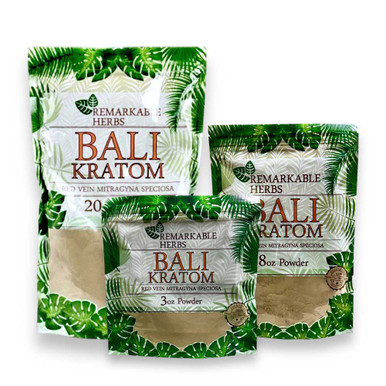
$22.24
Remarkable Herbs Red Bali Kratom Powder Experience the exceptional quality of Remarkable Herbs Red Bali Kratom Powder, a standout choice in the world of Kratom...… read more
Kratom and Stress Relief
Accounting for a substantial aspect of its therapeutic potential, the calming effects of kratom, especially strains like the red vein, significantly impact users' sleep quality. Renowned for their relaxing properties, these strains create an atmosphere conducive to restful sleep. Kratom, working in concert with the nervous system, helps reduce stress levels and induces a state of relaxation that can facilitate a favorable sleep cycle—underscoring potential kratom for sleep support.
The Calming Effect of Kratom
One of the significant aspects of kratom for sleep aid is its calming effect. Users have reported a marked decrease in stress levels, which can be valuable in creating the right conditions for restful sleep. This stress reduction is mediated through how kratom interacts with the nervous system. The herb is known to act on opioid receptors in the brain, inducing a sense of calm and relaxation that can mitigate stress and potentially enhance sleep quality.
Kratom's Role in Mood Regulation
The role of kratom extends beyond stress relief to mood regulation. Interestingly, despite being a natural herb, kratom for sleep has effects comparable to conventional sleep drugs, with some unique differences. Unlike many traditional sleep medications that can cause side effects such as grogginess and disorientation, kratom users typically report fewer side effects. Moreover, its ability to enhance mood by reducing stress and anxiety can enhance sleep quality by helping individuals enter a calm, relaxed, and positive state conducive to sleep.
Moreover, the mood-enhancing qualities of kratom may have potential applications in managing mood disorders, a benefit that is currently being explored. An interesting case study of a 63-year-old man who used kratom for seven years to self-manage his major depression and generalized anxiety disorder demonstrates these potential benefits. He reportedly experienced reduced symptoms of depression, sleeping problems, and anxiety. However, during periods of high stress, his routine kratom doses unexpectedly stopped working, illustrating that while kratom can help manage mood disorders, it isn't failsafe, particularly under high stress conditions.
Moreover, recent research suggests that long-term kratom use might elicit something called endoplasmic reticulum (ER) stress, which has been linked with more severe depressive symptoms during kratom withdrawal and abstinence. This reveals a more complex picture of kratom's effects, suggesting a need for more research to fully understand its benefits and potential drawbacks in mood regulation.
OPMS Silver Kratom Capsules Red Vein Sumatra
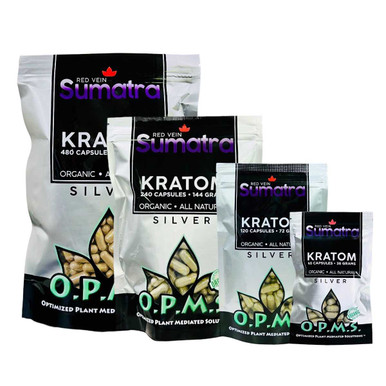
$6.79
OPMS Silver Kratom Capsules Red Vein Sumatra Discover the pinnacle of Kratom quality with OPMS Silver Sumatra Red Kratom Capsules, brought to you by Pure...… read more
Dosing and Guidelines for Safe Use of Kratom
Kratom, or mitragyna speciosa, is available in varied forms that include capsules, teas, extracts, and leaf powder. These options cater to different user preferences and needs, allowing flexibility in intake methods.
Available Forms of Kratom
Choosing the best form of kratom depends on convenience, availability, personal preference, and the desired effect. Some users prefer capsules due to their ease of use, while others might prefer tea for its calming ritual or the direct administration of leaf powder for a quick onset of effects.
Starting with a Low Dose
It's vital to start with a low dose, generally around 2-5 grams, taken on a full stomach. One subsequently increases the dosage gradually, closely monitoring the effects to identify a suitable personal dosage range. This approach minimizes the risk of adverse reactions and allows individuals to achieve their desired effects responsibly. Hydration is critical when using kratom, as it can help prevent possible side effects like nausea and headaches.[1]
Choosing Quality Kratom
When purchasing kratom, quality is critical. Opt for vendors that provide transparency about their sourcing, harvesting practices, and lab testing results. As the alkaloid content and potency of kratom products can greatly vary and lack regulatory oversight, choosing a trusted, reputable vendor is crucial to safety and efficacy.[2]
Side Effects and Risks of Kratom
Kratom is a natural supplement, but like all substances, it carries risks with misuse or prolonged usage. Responsible use is key to harnessing kratom’s potential benefits while mitigating potential dangers.
Risks of Overdosing or Prolonged Usage
Using high doses of kratom or prolonged usage can lead to adverse effects such as dependency and withdrawal symptoms. Mitigating these circumstances involves adhering to the recommended dose, avoiding mixing kratom with other substances, and consulting with a healthcare provider, especially if you're pregnant, breastfeeding, or on other medications.[1]
Potential Risk of Addiction and Habit Formation
Long-term use of kratom may risk addiction and habit formation, which can trigger withdrawal symptoms upon cessation. Awareness and understanding of these possible impacts are essential for responsible use.[1]
Steps to Minimize Risks and Promote Safe Use
Practicing safe usage includes starting with a low dose and gradually increasing, not mixing kratom with other substances, staying hydrated, and monitoring your body's reaction. It's also crucial to seek accurate, evidence-based information regarding kratom use. Healthcare providers can facilitate educational discussions to help ensure aware and informed usage of this plant-based remedy.[2]
Disclaimer
The products discussed here and any claims or suggestions made have not been evaluated by the Food and Drug Administration (FDA). This content is not intended to diagnose, treat, cure, or prevent any disease.
The information on this website is provided for general informational purposes only and should not be relied on as the sole basis for making decisions – we encourage consulting primary, qualified, more complete, or professional sources. Any reliance on the material on this site is at your own risk.
Information shared on this site may be updated at any time and may include information or data that are no longer current, accurate, or complete and is provided for your reference only. We are not obligated to update published content, and it is the reader’s responsibility to monitor any changes and to consult with primary, qualified, more complete, or professional sources.
We make no guarantees regarding the completeness, accuracy, or reliability of the information provided, nor do we warrant that any products, services, or materials offered will meet individual expectations. Use of this site and its content is at your own discretion and risk.


